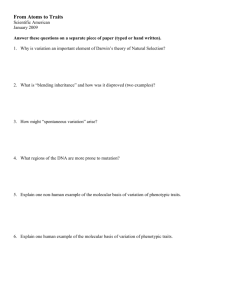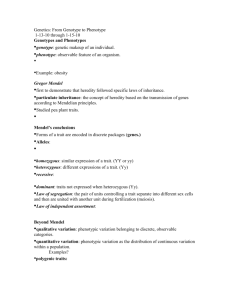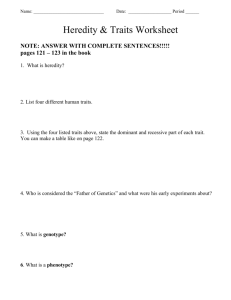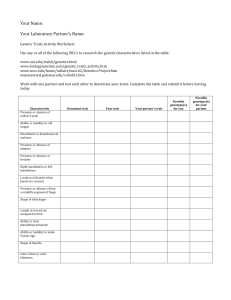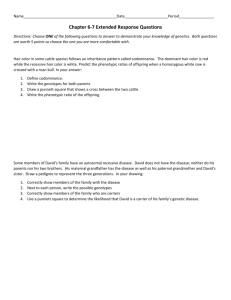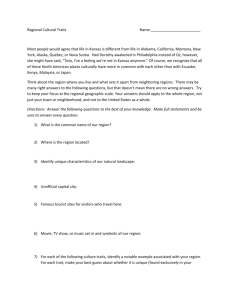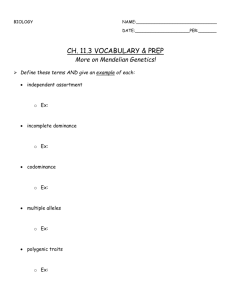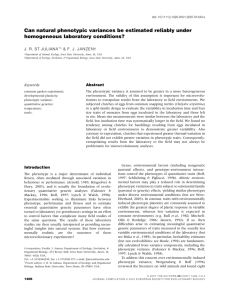Human Trait Activity
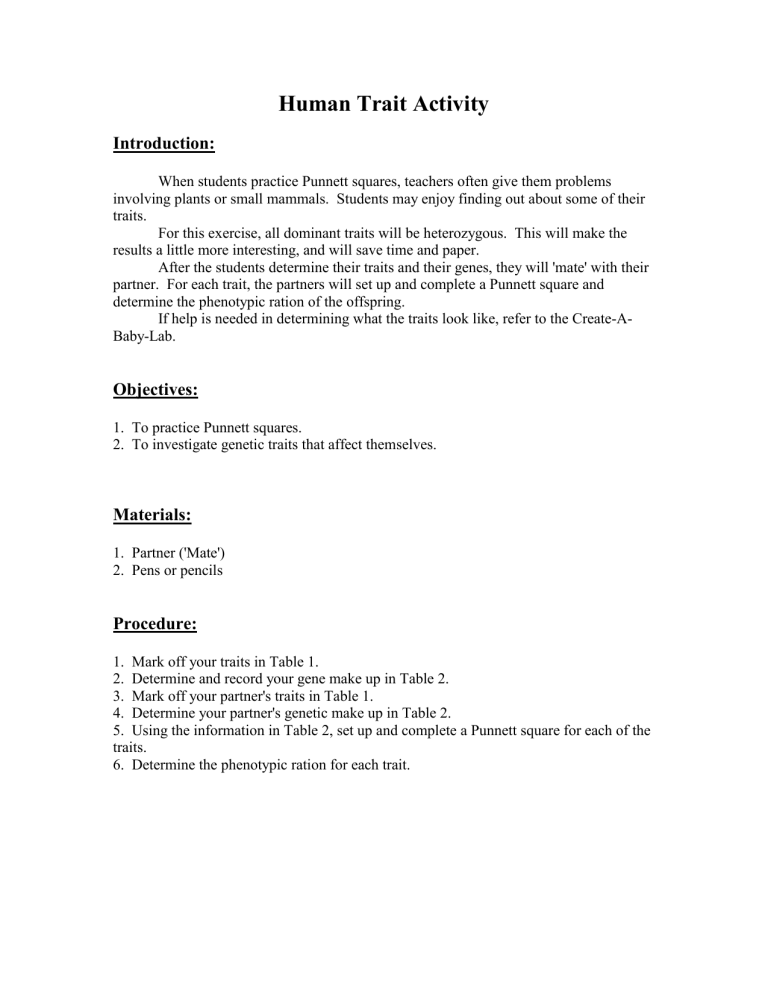
Human Trait Activity
Introduction:
When students practice Punnett squares, teachers often give them problems involving plants or small mammals. Students may enjoy finding out about some of their traits.
For this exercise, all dominant traits will be heterozygous. This will make the results a little more interesting, and will save time and paper.
After the students determine their traits and their genes, they will 'mate' with their partner. For each trait, the partners will set up and complete a Punnett square and determine the phenotypic ration of the offspring.
If help is needed in determining what the traits look like, refer to the Create-A-
Baby-Lab.
Objectives:
1. To practice Punnett squares.
2. To investigate genetic traits that affect themselves.
Materials:
1. Partner ('Mate')
2. Pens or pencils
Procedure:
1. Mark off your traits in Table 1.
2. Determine and record your gene make up in Table 2.
3. Mark off your partner's traits in Table 1.
4. Determine your partner's genetic make up in Table 2.
5. Using the information in Table 2, set up and complete a Punnett square for each of the traits.
6. Determine the phenotypic ration for each trait.
Results:
Table 1:
Your phenotype and your partner's phenotype. (Remember: a dominant trait is automatically heterozygous for this activity.)
Dominant Traits Recessive Traits
You Partner Trait You Partner Trait
Dark Hair
(Dd)
Widows' Peak
(Ww)
Free Ear
Lobes (Ee)
Light Hair
(dd)
Straight Hair
(ww)
Attached Ear
Lobes
(ee)
No freckles
(ff)
Left Handed
(rr)
Hitch-hikers thumb (ss)
Non-tongue
Roller (tt)
Freckles (Ff)
Right Handed
(Rr)
Straight thumb (Ss)
Tongue Roller
(Tt)
Table 2: Gene Make Up
Record genotypes in Table 2.
Trait Your genes Partner's genes
Hair color
Hair line
Ear lobes
Freckles
Hand Preference
Thumb
Tongue
Punnett Squares:
Phenotypic Ratio:_________________________
Phenotypic Ratio:_________________________
Phenotypic Ratio:_________________________
Phenotypic Ratio:_________________________
Phenotypic Ratio:_________________________
Last updated 10-01
